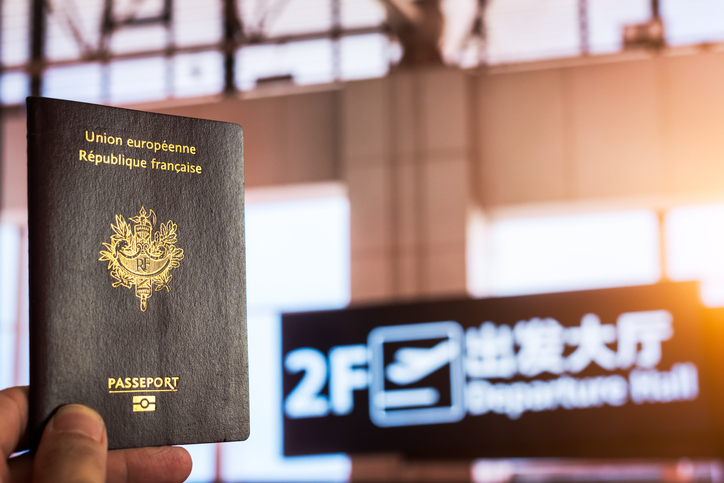x
Our website uses cookies. By continuing to use the site, you agree to our use of these cookies. To learn more about how we use the cookies and how you can manage them, please see our cookies policy.
France offers the opportunity for foreign nationals to apply for French citizenship after residing in the country for five years together with the option for dual citizenship. In 2022, just under 115,000 foreign nationals obtained French citizenship, according to statistics published by Statista.
This guide summarises everything a foreign national should know about the French citizenship application, including the procedure, different paths, and how immigration lawyers (Avocats) can help.
Click on the links below to jump to that section:
Discover the application process for becoming a French citizen.
Browse the different eligibility criteria for applying for French citizenship.
Find out when an immigration lawyer is beneficial for the French citizenship application.
The different time frames of the French citizenship application and when it may vary.
Find out how much it costs to apply for French citizenship.
Living in France is an attractive prospect for many due to its rich culture, robust economy, and high quality of life. Foreign nationals in France often explore options to extend their stay, including obtaining a residence permit (carte de séjour) and applying for citizenship by declaration or decree. There are several pathways to apply for French citizenship, each with its own criteria and process:
By birth (Jus soli): Due to new immigration laws, this has since been restricted and will not be automatically granted. Instead, foreign nationals will apply for French citizenship between the ages of 16 and 18.
By descent (Jus sanguinis): Children with at least one French parent will receive citizenship as long as they can prove a strong connection to the country.
By marriage: If you are married to a French spouse, you can apply for citizenship after four years, as long as you have lived together in France, and your marriage is valid when applying.
By naturalisation (or by décret): After living in France for an uninterrupted five years, foreign nationals can apply for French citizenship by naturalisation or residence.
To apply for French citizenship, you must assemble the required documentation, which includes two signed copies of the application form in French, your marriage and birth certificate, and your residency permit if you are applying for citizenship by naturalisation.
After submitting your application, you will be required to attend an interview. During this interview, you will be asked to take a French language test to demonstrate at least a B1 (intermediate) level of proficiency, as well as your knowledge of French culture, history, and society.
For more information on the application process for French citizenship, read our expert guide here.
Naturalisation (décret ) is one of the most common routes for foreign nationals. It requires the applicant to have resided in France for a certain period of time, exhibit a sufficient level of integration into French society, and demonstrate a commitment to the country's principles and values.
Other paths to French citizenship involve declaring a connection to the country and proving a strong link, such as Jus Soli (citizenship by birth) and Jus Sanguinis (citizenship by descent). Applicants wishing to apply for citizenship by birth will be eligible if they have lived in France for a specific period.
This depends on their age; for example, those over 18 can apply for citizenship as long as they meet the following criteria:
Having lived in France since they were six years old
Attended French school
Have a sibling with French citizenship
By descent (Jus Sanguinis) primarily has one requirement for foreign nationals seeking French citizenship. Children with at least one French parent or grandparent may apply to become a French citizen, if they can prove their lineage with appropriate documentation.
If you are applying for citizenship through marriage to a French spouse, you must be married for at least four years to be eligible and lived in France continuously for at least three years. You must also prove your knowledge of the French language (at a B1 level), history, and culture.
For more information, read our guide on what is required from foreign nationals applying for French citizenship here.
Each of these pathways requires careful consideration of individual circumstances, and legal advice may be necessary to determine which route is most appropriate. An immigration lawyer (avocate) can help evaluate eligibility based on specific personal and familial details and ensure the right pathway is chosen from the outset.

An immigration lawyer is extremely beneficial for foreign nationals applying for French citizenship. While it is possible to apply without legal aid, it is not recommended as it can lead to complications during the application process.
Instructing French immigration lawyers (Avocats) will help compile the necessary documentation required by the French government to prove a connection to the country or strengthen the claim of citizenship. They can also assist foreign nationals in the following ways:
The French government may reject an application for various reasons, including insufficient evidence, lack of integration, or administrative errors. Experienced immigration lawyers will assess your claim for French citizenship, help gather the required documents, and prove your application to remove any avoidable errors.
Read more about when foreign nationals may benefit from a French immigration lawyer here.
The process of applying for French citizenship can be lengthy and complex and the time frame may vary depending on the path to citizenship, strength of application, time spent waiting to receive a residency permit or visa, and dual citizenship issues.
Once you have gathered the necessary documents and submitted your application, the process can take six to 18 months, depending on the complexity of your case.
Following the interview, the local préfecture (administrative office) will decide whether your application is ‘recevable’ (acceptable) or ‘irrecevable’ (non-acceptable). If accepted, your dossier will be passed on to the Sous-direction de l’accès à la nationalité française (SDANF). This stage can take several months, as the SDANF may request additional documents or conduct further checks. If your application for French citizenship is denied, our cross-border lawyers will assess and pursue the reasons on your behalf. This might lead to filing an appeal to the Administrative Court to challenge the rejection, which is possible after six months.
For more information, read our expert guide on how long the French citizenship application takes here.
The standard application fee to apply for French citizenship is €55, which needs to be submitted together with copies of the citizenship application in French and other required documentation.
In addition to the application fee of €55, applicants may face other costs, including; the mandatory French language test (which ranges between €150 and €200); a French passport processing fee (€86); translating and gathering documents; and legal fees.

Read more about the cost of applying for French citizenship with our expert guide here.
Giambrone & Partners specialise in various fields and operate in a multijurisdictional capacity. This includes supporting immigration and citizenship cases in Spain, Portugal, Italy, and France. If you aim to obtain French citizenship, our expert lawyers can guide you through the application process and support gathering the necessary documentation. Contact Giambrone & Partners below to find out more.
Application Process Gaining French Citizenship Guides
Requirements for French citizenship
When do I need a French immigration lawyer